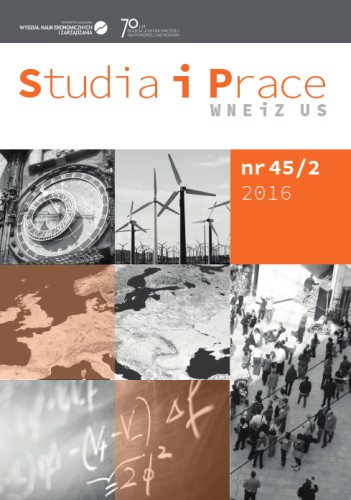DEKARBONIZACJA EUROPEJSKICH GOSPODAREK W UJĘCIU PRZESTRZENNYM
DECARBONIZATION OF EUROPEAN ECONOMIES FROM THE SPATIAL PERSPECTIVE
Author(s): Ewa JankowskaSubject(s): Economy, Energy and Environmental Studies, Political Ecology, EU-Accession / EU-DEvelopment
Published by: Wydawnictwo Naukowe Uniwersytetu Szczecińskiego
Keywords: panel models; decarbonization; regional development; renewable energy resources;
Summary/Abstract: Decarbonization, in the light of environment protection policy, is a process which consists in reducing and, eventually, stopping completely CO2 emissions to atmosphere. The European Union targets a reduction of emissions of noxious greenhouse gases by 40% in 2030 and by 80–95% in 2050 versus 1990 levels. For those member states whose energy production is mainly coal-based, this may mean defining a completely new model of functioning on the power market. This article aims to identify experience and challenges in the area of economies decarbonization, especially the use of energy from renewable sources. Results of empirical studies performed based on a set of panel data from 2005–2012 were used as the basis for conducting scientific analyzes and interpretations. The study was carried out based on selected environmental indicators, GDP per capita and the share of renewable power sources in the energy industry structure. In the article, a note was also made concerning the spatial differentiation of electricity production from renewable sources.
Journal: Studia i Prace WNEIZ US
- Issue Year: 2016
- Issue No: 45/2
- Page Range: 265-277
- Page Count: 13
- Language: Polish

